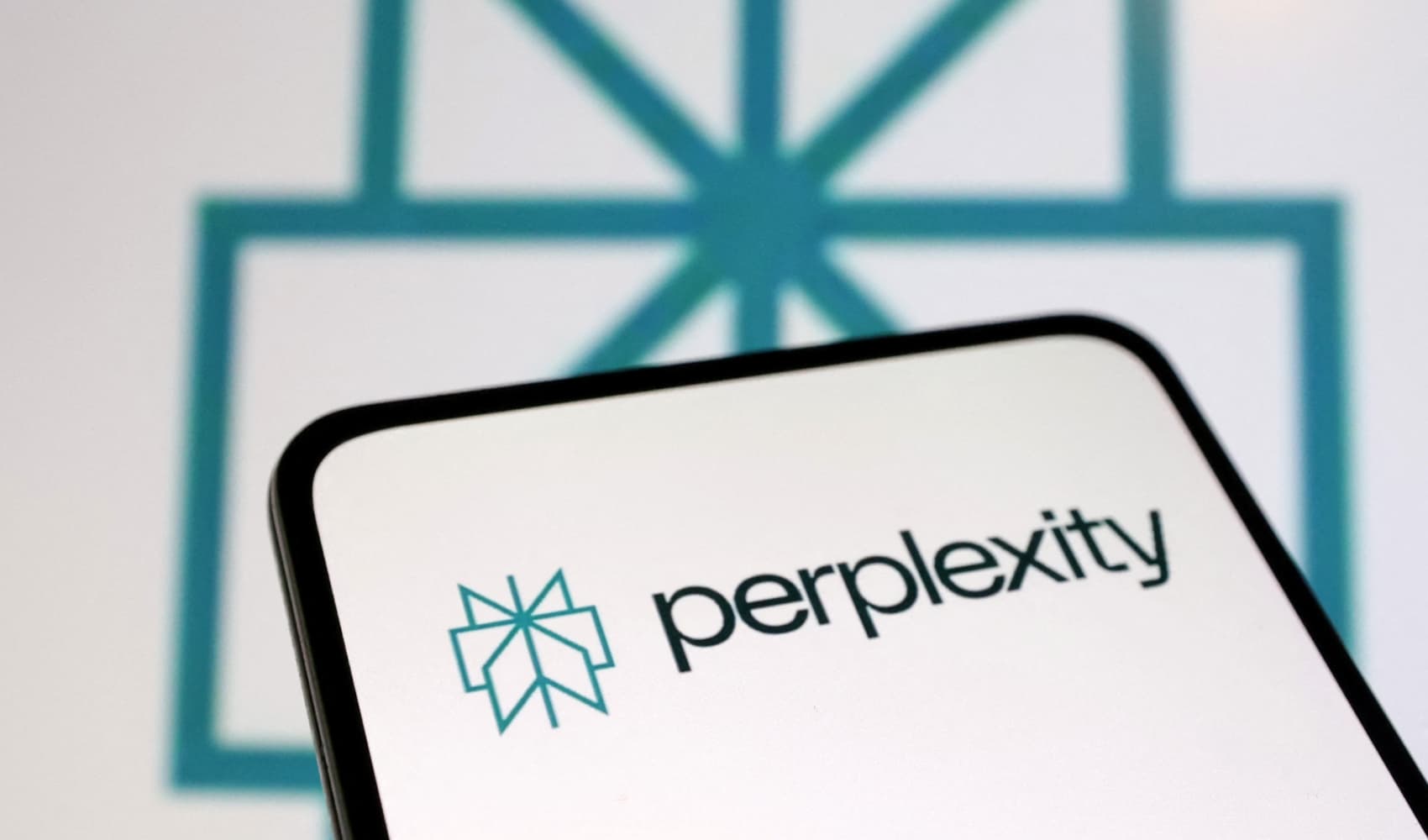AI to Kill Google? Alphabet Stock Plummets 7% After Apple Bombshell
Alphabet's Stock Plummets: Is the Reign of Google Search Over?
Introduction: A Seismic Shift in Search?
The tech world is buzzing, and not in a good way for Alphabet (Google's parent company). Imagine a giant suddenly stumbling – that's essentially what happened when news broke that Apple's services chief, Eddy Cue, believes AI-powered search engines are poised to dethrone traditional search giants like Google. The ripple effect? A significant 7% drop in Alphabet's stock, a clear indication that investors are taking this threat very seriously. But is this just a blip, or does it signal a fundamental shift in how we access information online? Let's dive in.
The Cue Bomb: What Was Said and Why It Matters
So, what exactly did Eddy Cue say that caused such a stir? According to Bloomberg, Cue testified in a federal court – yes, amidst the Justice Department's antitrust lawsuit against Alphabet – that he anticipates AI search engines will eventually replace standard search engines like Google. But the real kicker? He expects to integrate AI services from companies like OpenAI, Perplexity, and Anthropic directly into Apple's Safari browser. That's like inviting the barbarians inside the gate.
The Antitrust Angle: More Than Just Search
It's important to remember the context of Cue's statement. He was testifying in a lawsuit alleging that Google has an unfair monopoly in the search market. His comments about AI aren't just about technology; they're about competition. By suggesting alternatives and potential integrations, he's essentially throwing fuel on the fire of the antitrust case.
The AI Search Revolution: What's Different?
But what makes AI search engines so different from the Google search we all know and (sometimes reluctantly) love? The key lies in their ability to understand and respond to natural language queries in a much more sophisticated way.
Beyond Keyword Matching: Understanding Intent
Traditional search engines rely heavily on keyword matching. You type in a query, and they find pages containing those words. AI search engines, on the other hand, attempt to understand the *intent* behind your query. Think of it as the difference between asking a librarian for "books on space" versus asking "can you recommend a book about the possibility of life on other planets that's accessible to a non-scientist?"
Conversational Search: A More Human Experience
AI-powered search is often conversational. You can ask follow-up questions, refine your query, and receive personalized recommendations. It's like having a digital assistant who can help you navigate the vast sea of information online.
Apple's Strategy: A Trojan Horse for AI Search?
Apple's potential integration of AI search engines into Safari is a strategic masterstroke. Safari is the default browser on millions of iPhones, iPads, and Macs. By offering AI search options, Apple could introduce a massive user base to these new technologies, potentially disrupting Google's dominance.
The Power of Default: Convenience and Adoption
Let's face it, most people stick with the default settings. If Safari offers a seamless AI search experience, many users will simply try it out of convenience. This could lead to a rapid adoption rate, giving AI search engines a significant foothold in the market.
The Players: OpenAI, Perplexity, and Anthropic
Cue specifically mentioned OpenAI, Perplexity, and Anthropic as potential partners. Let's take a closer look at these companies and what they bring to the table.
OpenAI: The GPT-3 Powerhouse
OpenAI is, of course, best known for its GPT series of large language models. These models are incredibly powerful and can generate human-quality text, translate languages, and answer questions in a comprehensive and informative way. Imagine a search engine powered by GPT – that's the kind of potential OpenAI brings.
Perplexity: Focusing on Accurate Information
Perplexity AI is an AI-powered search engine that prioritizes providing accurate and verifiable information. It cites its sources and aims to present a neutral and unbiased view of any topic. In an age of misinformation, Perplexity's focus on accuracy is a valuable asset.
Anthropic: AI Safety and Ethical Considerations
Anthropic is another leading AI research company focused on building reliable, interpretable, and steerable AI systems. They are particularly concerned with AI safety and ethical considerations. As AI becomes more powerful, ensuring its responsible development is crucial, and Anthropic is at the forefront of this effort.
Google's Response: Can the King Hold His Throne?
So, what is Google doing in response to this growing threat? The company is certainly not sitting idly by. Google has been investing heavily in AI research for years, and it has its own powerful language models.
LaMDA and Bard: Google's AI Arsenal
Google has developed its own language models, such as LaMDA and Bard, which are designed to power conversational AI experiences. The question is whether Google can integrate these technologies into its search engine quickly and effectively enough to maintain its dominance.
The Incumbency Advantage: Google's Strengths
Despite the challenges, Google still has a significant incumbency advantage. It has a vast data set, a well-established search infrastructure, and a loyal user base. Unseating Google won't be easy, but the rise of AI search is undoubtedly a wake-up call.
The Future of Search: A Hybrid Approach?
Will AI completely replace traditional search engines? It's more likely that we'll see a hybrid approach, where AI and traditional search technologies work together to provide a more comprehensive and personalized search experience.
AI-Powered Enhancements: The Best of Both Worlds
Imagine a search engine that uses AI to understand your intent, provide relevant results, and answer your questions in a conversational manner, while still leveraging the vast index of the web built by traditional search algorithms. That's the potential future of search.
The Implications for Businesses: SEO in the Age of AI
The rise of AI search also has significant implications for businesses and their SEO strategies. Keywords will still matter, but understanding user intent and creating high-quality, informative content will become even more crucial.
Focus on User Experience: Creating Valuable Content
In the age of AI search, the focus will shift even more towards creating content that is valuable and engaging for users. Search engines will prioritize websites that provide a great user experience and answer users' questions in a comprehensive and informative way.
Conclusion: A New Era of Information Discovery
Eddy Cue's statement has sent shockwaves through the tech world, highlighting the growing threat that AI poses to traditional search engines like Google. While Google still holds a significant advantage, the rise of AI-powered alternatives like OpenAI, Perplexity, and Anthropic suggests that the future of search is likely to be very different. The integration of these technologies into platforms like Apple's Safari could accelerate this shift, potentially ushering in a new era of information discovery.
Frequently Asked Questions
- Will Google Search disappear completely? No, it's unlikely Google Search will disappear entirely. More likely, it will evolve to incorporate AI features.
- How can I prepare my website for AI-powered search? Focus on creating high-quality, informative content that answers users' questions comprehensively. Prioritize user experience and ensure your website is mobile-friendly.
- Are AI search engines more accurate than Google? Accuracy varies depending on the AI search engine. Some prioritize factual accuracy, while others focus on providing conversational experiences.
- Will SEO still be relevant in the age of AI search? Yes, SEO will still be relevant, but the focus will shift towards understanding user intent and creating valuable content.
- Which AI search engine is the best right now? The best AI search engine depends on your needs. Perplexity AI is good for factual information, while others excel at conversational search. Experiment to find what works best for you.

